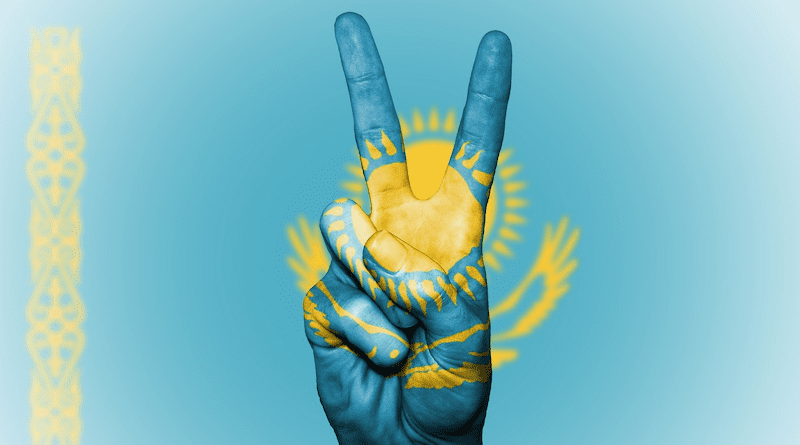How Kazakhstan Is Promoting Human Rights Through UN Pledges – OpEd
Progress in the sphere of human rights often comes in incremental steps rather than giant leaps. The world is currently divided into countries that fully champion human rights, those that deprioritise them, and a third group making strides towards the standards set by the first. While several of the former Soviet republics are already in the first category, some align themselves with the third category, embarking on a path to emulate those who fully embrace human rights.
Kazakhstan is a case in point, as exemplified by the country’s recent pledges to the Office of the United Nations High Commissioner for Human Rights. In line with the words of the Universal Declaration of Human Rights – “all human beings are born free and equal in dignity and rights” – it’s important to acknowledge the efforts made by countries like Kazakhstan in striving toward these ideals, particularly in a world where over half the countries still struggle with comprehensive anti-discrimination laws.
In December 2023, Kazakhstan submitted a series of pledges focused on enhancing human rights mechanisms within its borders. These pledges revolve around legal protection for children, the concept of a “Listening State” where the government actively listens to and addresses the concerns of its citizens, and the promotion of digitalisation for human rights, which aims to reduce disadvantages arising from unequal access to modern technologies and thereby enable more effective exercise of rights. Additionally, the pledges involve strengthening the role of civil society and incorporating UN human rights indicators into national plans. This ambitious approach aims to embed human rights into the very fabric of Kazakhstan’s governance and society.
The most notable stride was made on December 8, 2023, when the President of Kazakhstan, Kassym-Jomart Tokayev, signed a decree backing an Action Plan to advance human rights and the rule of law. As part of this plan, seven laws will be adopted, addressing key issues such as domestic violence, labour safety and expanding the rights of persons with disabilities. Moreover, a regional child rights ombudspersons will be established, with the aim to safeguard the future of its younger citizens.
It’s worth noting the universal relevance of Kazakhstan’s initiatives. In an increasingly interconnected world, the steps taken by one nation can have far-reaching implications. Kazakhstan’s progress in human rights not only sets a precedent for neighbouring countries and emerging democracies but also contributes to the global discourse on human rights standards. For the international community, these reforms signify a collective move towards a world where respect for human rights is the norm rather than the exception.
During its current membership in the UN Human Rights Council, Kazakhstan, on behalf of Central Asian countries, presented its first initiative – a resolution on the rights of children in the field of education. Despite the diverse positions of UN Member States on human rights issues, the presented document received broad support, gaining co-sponsorship from more than 70 states, including the USA, China, the European Union, as well as countries from Latin America, Asia, and Africa. Based on the country’s positive experience in repatriating and reintegrating children from conflict zones, a key element of the adopted document was a call to all UN Member States to ensure measures for the recovery and reintegration of children affected by armed conflict and terrorism, particularly through education.
Furthermore, in the context of geopolitical tensions and human rights abuses, Kazakhstan’s commitment is certainly welcome. It demonstrates that positive change is possible, encouraging other nations to reflect on and improve their own human rights records. It’s a reminder that concerted efforts and international cooperation can yield tangible improvements in the lives of people worldwide.
A pivotal move in Kazakhstan’s human rights journey is the constitutional enshrinement of the Human Rights Ombudsperson’s status and responsibilities, accomplished through a special Constitutional Law. Empowering the Ombudsperson with the authority to propose legislative and enforcement improvements to the President, Parliament, and Government is a significant step in institutionalising human rights oversight. Furthermore, the appointment of specific Ombudsmen for children’s rights and the rights of persons with disabilities, along with the ratification of international protocols in these areas, signals an approach to protecting vulnerable populations.
Another initiative is the re-establishment of the Constitutional Court, with the authority to directly hear citizen appeals and the power to issue final decisions on constitutional rights. This structural reform ensures that the Constitution remains the supreme guide, providing a robust framework for protecting the rights and freedoms of its citizens, as well as foreigners and stateless persons.
All of these reforms and initiatives originated from Kazakhstan’s civil society, showcasing a dialogue between the government and the country’s people, thereby exemplifying the notion of a “Listening State”.
The involvement of international bodies like the UN and OSCE in the oversight of these measures adds credibility to Kazakhstan’s efforts. Such collaborations ensure that Kazakhstan remains open to constructive international dialogue and is held accountable on the global stage. This approach, blending internal reforms with international cooperation, could be the blueprint needed for more countries to turn human rights from just a theory to a lived reality for citizens.
Kazakhstan’s journey, however, is not without its challenges. The nation’s past struggles with human rights issues cannot be overlooked, and the road ahead will require sustained effort, transparency, and sometimes difficult introspection. It’s also crucial for Kazakhstan to ensure that these reforms are not just ink on paper but translate into tangible improvements in the lives of its people.
Kazakhstan’s pledges to the UN are a promising step in the right direction. By recognising the gaps in its human rights record and actively working towards remedying them, the country sets an example for the global community. As the world continues to strive for universal human rights, it is important to encourage the progress made by nations like Kazakhstan, for it is in these incremental steps that the spirit of the Universal Declaration of Human Rights gradually becomes a universal reality.

